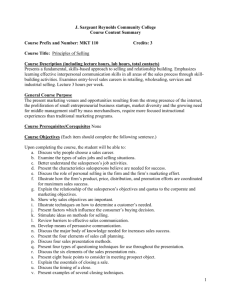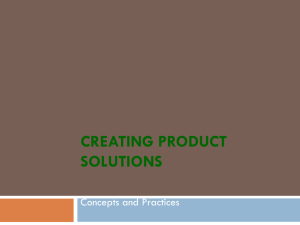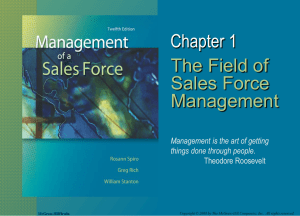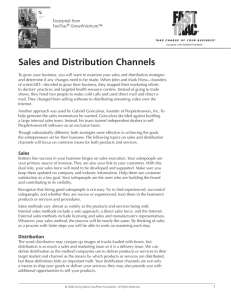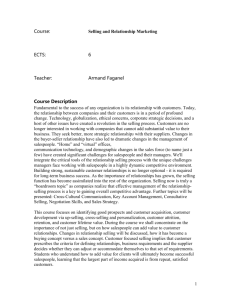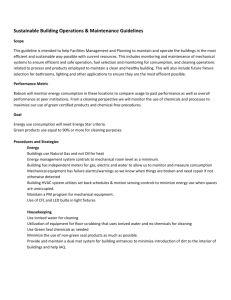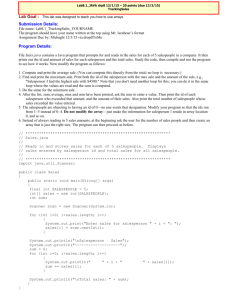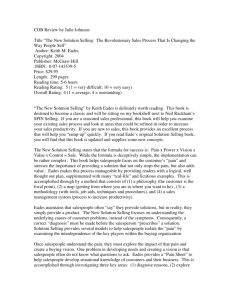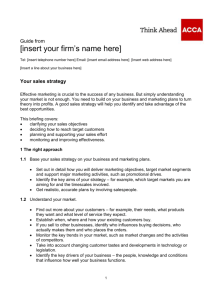Sales Success with Relationship Selling - Enviro
advertisement
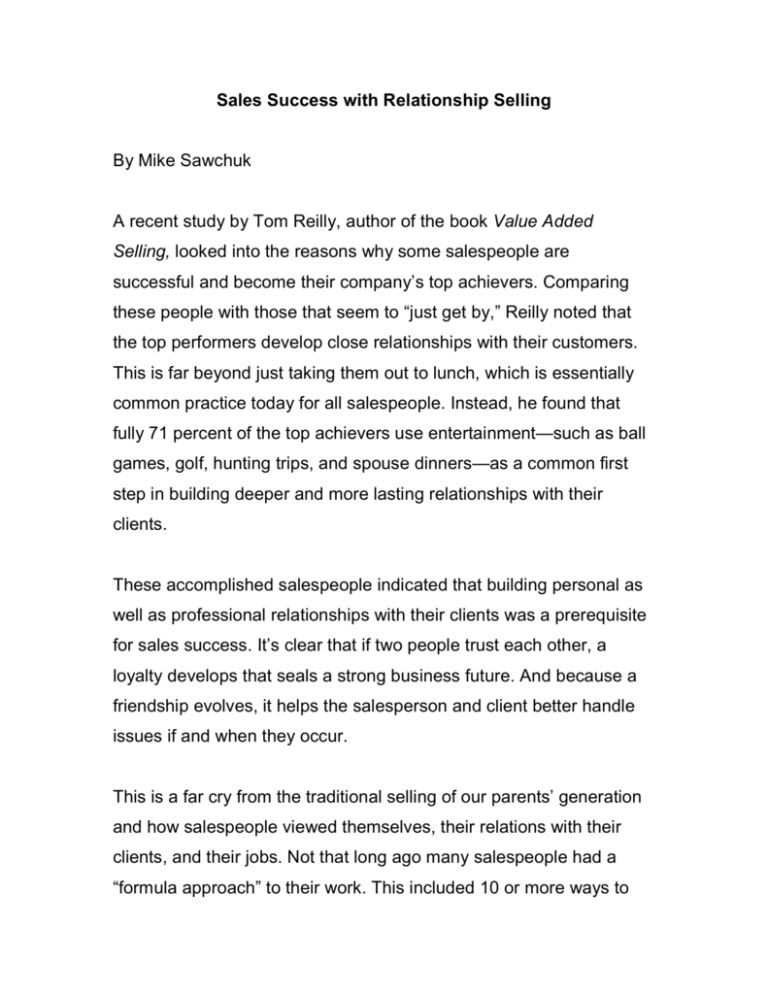
Sales Success with Relationship Selling By Mike Sawchuk A recent study by Tom Reilly, author of the book Value Added Selling, looked into the reasons why some salespeople are successful and become their company’s top achievers. Comparing these people with those that seem to “just get by,” Reilly noted that the top performers develop close relationships with their customers. This is far beyond just taking them out to lunch, which is essentially common practice today for all salespeople. Instead, he found that fully 71 percent of the top achievers use entertainment—such as ball games, golf, hunting trips, and spouse dinners—as a common first step in building deeper and more lasting relationships with their clients. These accomplished salespeople indicated that building personal as well as professional relationships with their clients was a prerequisite for sales success. It’s clear that if two people trust each other, a loyalty develops that seals a strong business future. And because a friendship evolves, it helps the salesperson and client better handle issues if and when they occur. This is a far cry from the traditional selling of our parents’ generation and how salespeople viewed themselves, their relations with their clients, and their jobs. Not that long ago many salespeople had a “formula approach” to their work. This included 10 or more ways to get an appointment with a customer, about a dozen ways to “close” a sale, and about two dozen ways to handle objections. While these techniques can be helpful, they often get in the way of relationship selling. And at their worst, [these techniques] result in a win/lose scenario, where customers ultimately feel they were coerced to select a product they may not really want or need. This traditional form of selling just won’t work today, especially now with Green cleaning as more customers understand the important role cleaning plays in the operation of their facilities, and the quicker distributors move away from it, the more successful they will become. Customers are simply too sophisticated for this old approach and have too many other ways to purchase cleaning and maintenance supplies. However, even though they have other purchasing options, they still want to work with a salesperson they can trust and who understands their business needs. But ball games and golf are not enough. In addition to entertainment, there are more concrete ways to develop distributor/client relationships and trust and put them into practice in virtually every aspect of the selling process. Among the keys to developing trust are the following: • Know the Product: This is imperative, even more so now as Green cleaning takes center stage. Few clients truly understand what Green cleaning is all about and can not be expected to fully trust salespeople confused as well. Clients want to know not only how the product works but how it will help them and why they should buy it. • Make Contact: We all know that the famous line “if you build it, he will come” from the 1989 movie Field of Dreams is a testament to human dreams but has little to do with reality, especially when it comes to selling cleaning products. In order for relationship selling to begin, there has to be a relationship, which means going out and making contact with potential prospects. • Uncover Their Needs: The first meetings with new clients is often devoted to questions and answers in an attempt to understand their needs and their business. Are they “going Green” now or if not, why not. We have to be sincere in our approach. If we do not have the products or cannot provide the service they need, we either have to tell the clients this or, recognizing the gaps in our knowledge, ask them to give us the opportunity to become more familiar. The key here is sincerity because sincerity builds relationships. • Provide Solutions: Once the prospects’ needs are understood and you are sure you have the products and services to help them, propose how your products and services can specifically solve their problems and meet their needs. Often it helps to have a good understanding of the features and benefits of your competitors’ products as well. This way you can point out how what you have to offer will better serve the clients. The final step in the selling process, “closing the sale,” is not really a part of relationship selling. We want to confirm the sale instead, by reviewing the customer’s willingness and ability to purchase the items selected. And in many ways, confirming the sale is actually the beginning of the selling process and not the end. This is because it helps form a commitment, which is needed in every relationship. Confirming the sale builds trust, respect, and rapport. Now it is essential for the distributor to deliver the products on time and as discussed and then follow up on the sale. Following up, crucial to relationship selling, ensures that the client is happy with the products selected and opens the door to a stronger relationship, future sales, and referrals. Mike Sawchuk is vice president and general manager of EnviroSolutions, a leading manufacturer of Green cleaning chemicals and supplies.
